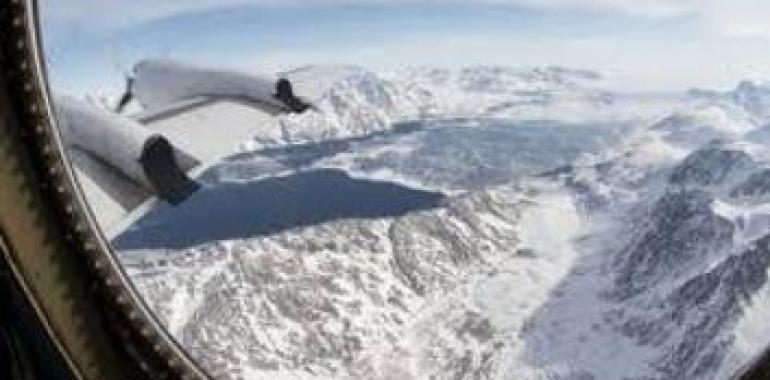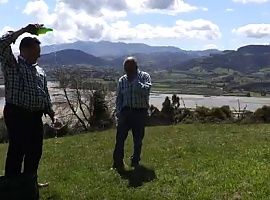Miami, United States, Dec. 15 (Andes).- A warming planet means that inland lakes may become far more common on Greenland, leading to swifter ice loss and faster sea level rise than previously predicted, scientists said Monday.
The findings in the December 15 issue of the journal Nature Climate Change project that lakes will become twice as common in the next 50 years as they are today, and by moving from the coasts to the inland areas they could have a major impact on the way the ice sheet melts.
The bodies of water, known as supraglacial lakes, sit atop the ice and are darker than other areas, attracting more sunlight and leaking water that can cause ice nearby to melt.
"Supraglacial lakes can increase the speed at which the ice sheet melts and flows, and our research shows that by 2060 the area of Greenland covered by them will double," said lead author Amber Leeson from the University of Leeds' School of Earth and Environment.
"When the ice sheet is thinner, it is at a slightly lower elevation and at the mercy of warmer air temperatures than it would have been if it were thicker, increasing the size of the melt zone around the edge of the ice sheet."
When the lakes get large enough, they begin to drain through fractures in the ice, making the entire ice sheet more slippery and prone to faster melting.
Researchers had never before simulated the future behavior of these lakes, which have already been migrating slowly inland since the 1970s.
But using data from the European Space Agency's Environmental Remote Sensing satellites, they made new simulations of how meltwater will flow and pool on the ice surface to form supraglacial lakes in the years to come.
Today, the bulk of Greenland's ice sheet is too cold for these lakes to form and they are restricted to band along the coast.
The band has already gained 35 miles (56 kilometers) since the 1970s, and by 2060 the area where these lakes can form will have crept inland up to 68 miles, or about double the area they cover today.
fuente. http://www.andes.info.ec/es/node/38535




















